Saint of the Day – 28 January – St Thomas Aquinas O.P. (1225-1274 aged 49 ) Doctor angelicus (Angelic Doctor) and Doctor communis (Common Doctor). Priest, Religious, Master Theologian, Philosopher, Write, Teacher, Jurist. Also known as: The Angelic Doctor/Doctor Angelicus, Common Doctor/Doctor Communis. The Great Synthesiser, The Dumb Ox, The Universal Teacher. Patron of Academics, Theologians, against storms, against lightning, apologists, book sellers, Catholic academies, Catholic Schools – (proclaimed on 4 August 1880 by Pope Leo XIII), Catholic universities, Catholic Colleges, chastity, learning; pencil makers, philosophers, publishers, scholars, students, University of Vigo and of St. Tomas, Batangas, theologians, Aquino, Italy; Belcastro, Italy, Diocese of Aquino, Falena, Italy. Attributes – chalice, dove, usually speaking into his ear, sometimes as he writes, monstrance, ox, star, sun, teacher with pagan philosophers at his feet, teaching, person trampled under foot. By universal consent, Thomas Aquinas is the pre-eminent spokesman of the Catholic tradition of reason and of divine revelation. He is one of the great teachers of the medieval Catholic Church, honoured with the titles Angelic and Common Doctor, being one of the 36 Doctors of the Church and is regarded as the “Master Theologian.”
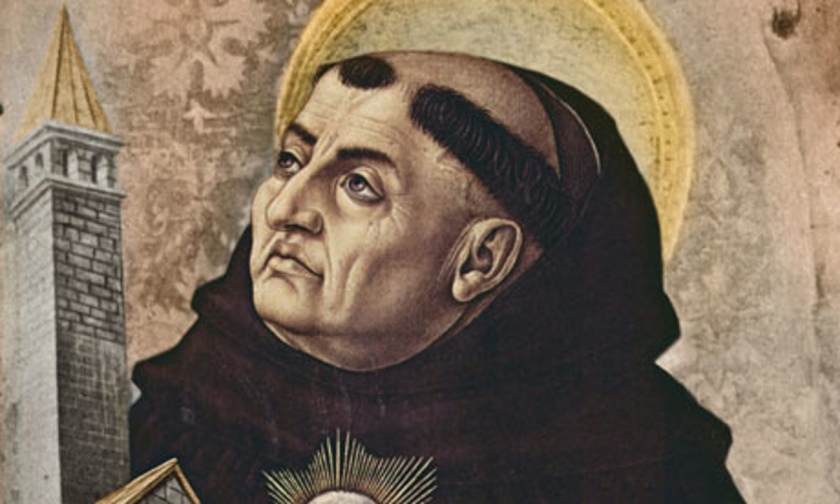
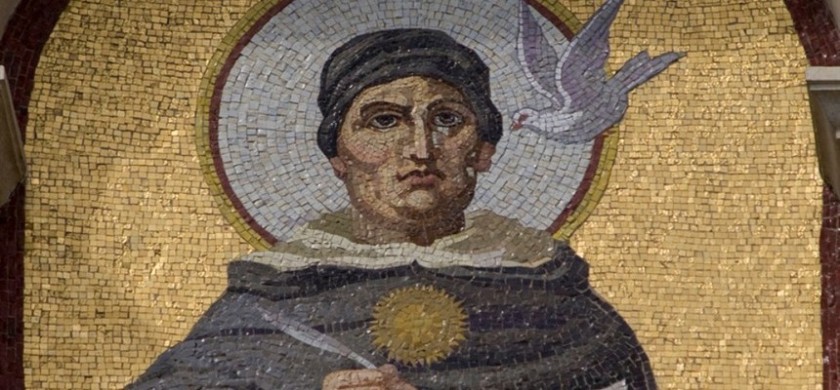
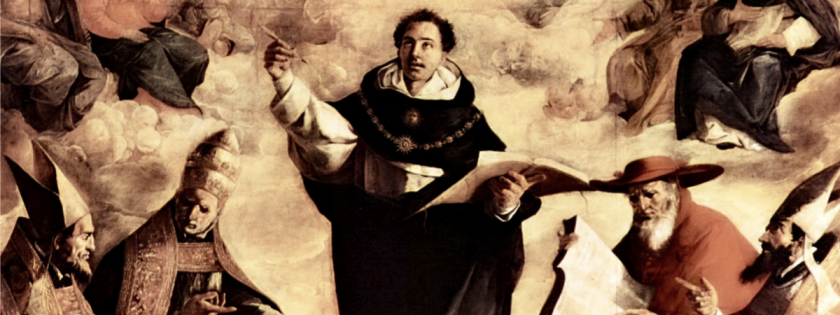
St Thomas Aquinas is known as the greatest philosopher and theologian of the intellectually rich 13th century and for many hundreds of years the work of this Patron Saint of Catholic Schools dominated the curriculum of seminaries and colleges around the world. He has been called one of the most profound teachers on Eucharistic doctrine, not only expounding on the mysterious processes in which bread and wine become the actual Body and Blood of Christ but coining the word transubstantiation used to describe it. And, because he wrote not only for scholars but also for the simple Catholic worshipper down the ages, the church has officially accorded him the titles “Angelic” and “Common” Doctor of the Church.”
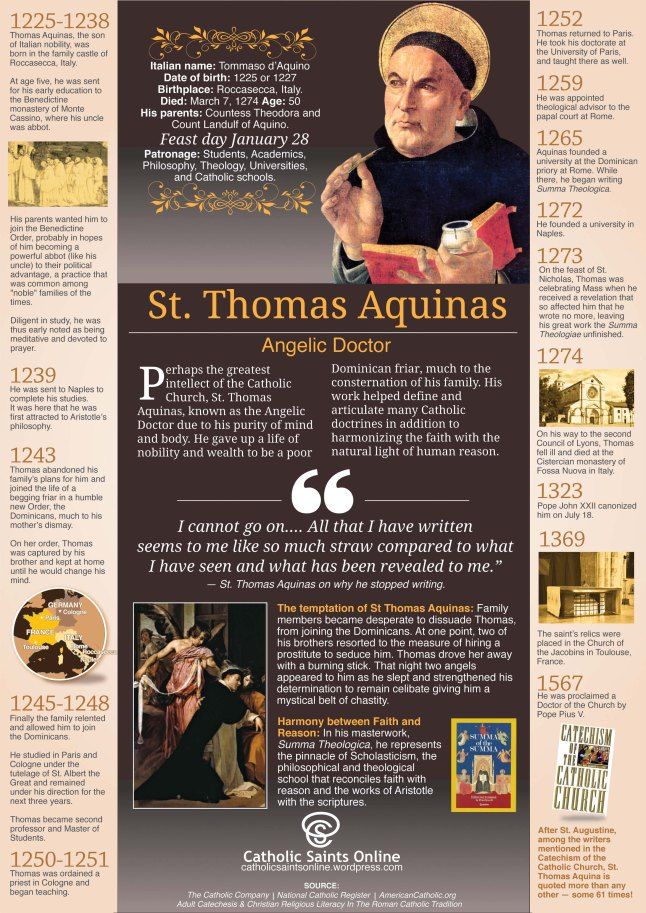
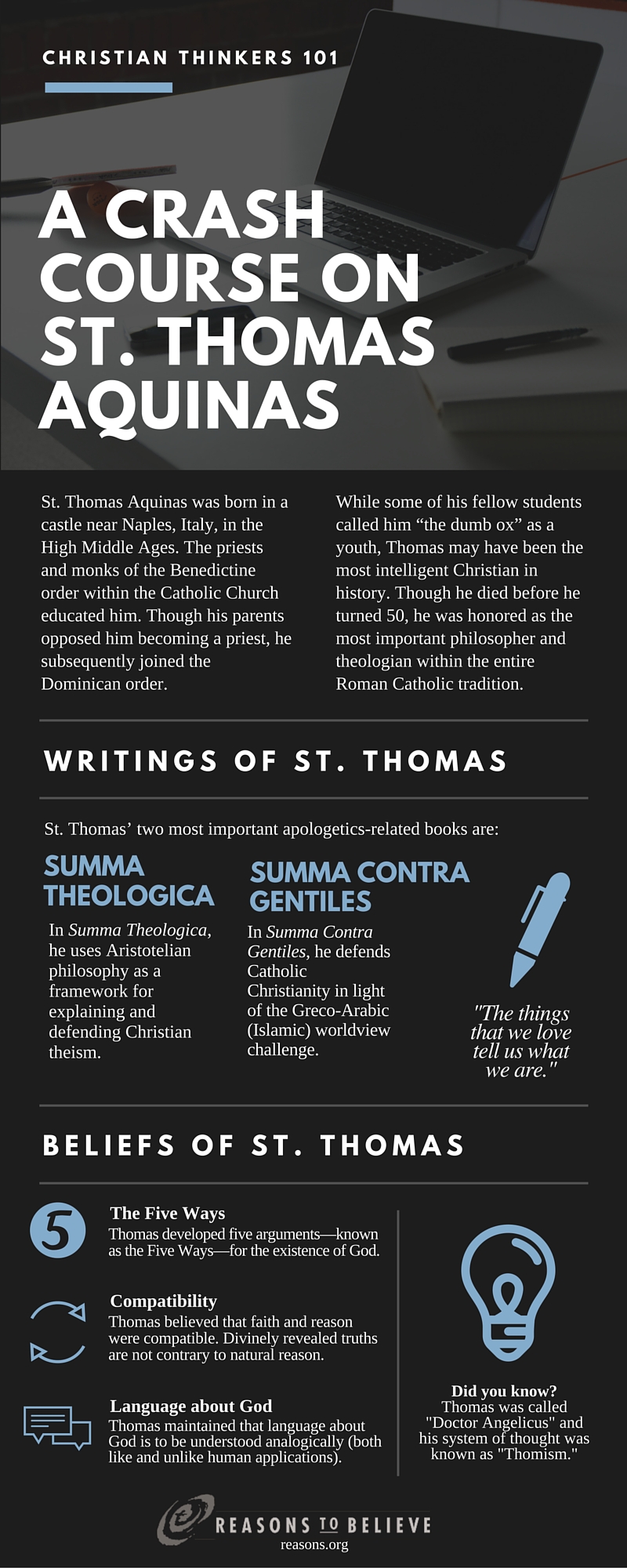
It is generally believed Thomas Aquinas was born about the year 1225 at the castle of his father, the Count of Aquino, in Rocca Secca near Naples, Italy. A precocious child, he amazed his teachers at the Monastery of Monte Cassino, where he received his early education, with one persistent question: “What is God?” It was a question he would reflect upon all his life.
When attending the University of Naples, he was attracted to the intellectual apostolate of the Dominican Friars and joined the order. Outraged at his rejection of their own plans for him to become a prestigious abbot and looking down on Dominicans as beggars, his aristocratic family kidnapped him on his way to Paris and imprisoned him at Rocca Secca. It took almost two years and the intercession of the Pope and the Emperor before his family finally gave up and allowed him to rejoin the Dominicans.
St Albert the Great (1200-1280), also a Doctor of the Church, who taught him Aristotelian philosophy at Paris and Cologne, soon spotted his genius and became his mentor. When Thomas was nicknamed the “Dumb Ox” by his classmates, most likely because of his bulky frame and quiet manner, Albert prophesied: “You call him a dumb ox, but I tell you this dumb ox will bellow so loudly that his bellowing will fill the world.”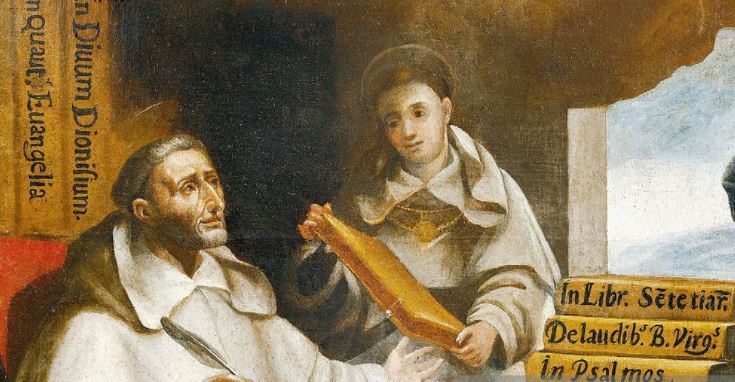
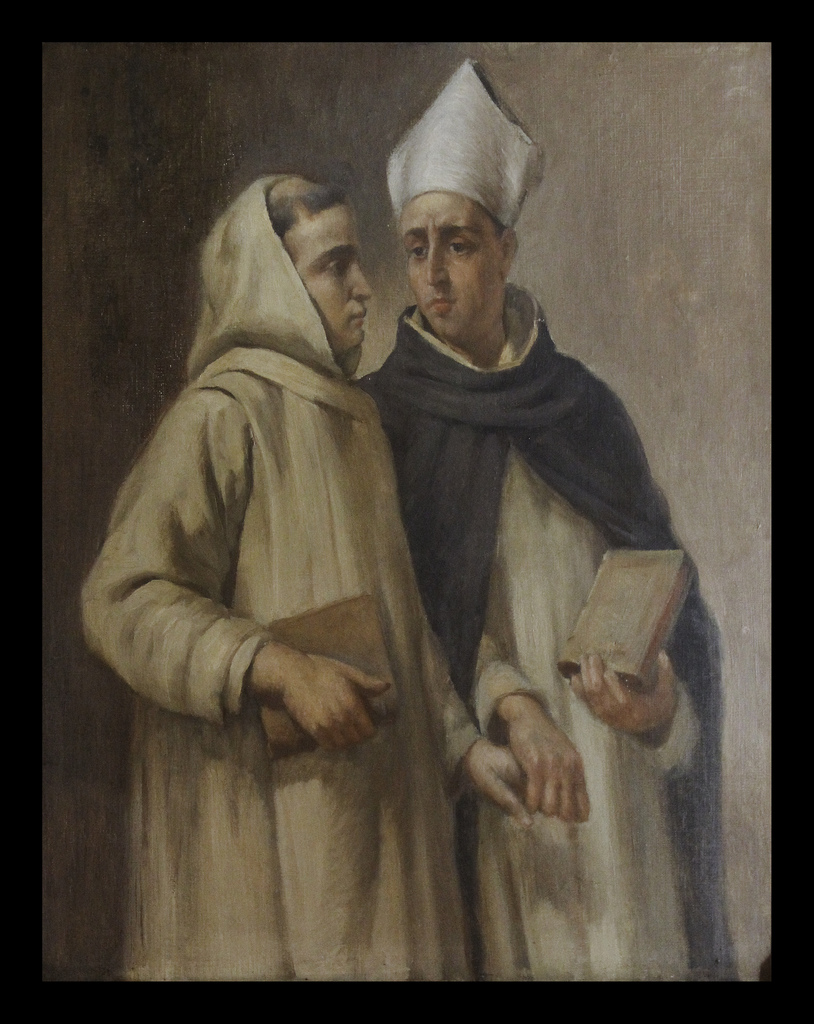
Indeed, this master teacher attracted thousands of people to his public lectures, compiled more than 20 volumes of work, was consulted by popes and a king (Louis IX), and showed that one could use pure reason, not faith, to defend theological tenets such as the existence of God. His greatest work, the Summa Theologica (Summary of Theology), which he began in 1265, is, a comprehensive treatise on all the Christian mysteries.
Despite his reputation as a thinker, Thomas remained a humble, devout priest who resisted attempts to make him a bishop, fasted frequently and spent whole nights in prayer before the Blessed Sacrament and the Crucifix. He told his intimate friend, St Bonaventure(1217-1274), another Doctor of the Church, that it was while he leaned his head against the tabernacle and turned his mind in sorrow to the image of the crucified Christ, that he derived all his learning.
Once, when Thomas was lost in prayer while living in the Dominican priory in Naples, a sacristan concealed himself to watch. He saw Thomas lifted into the air and heard Christ speak to him from the crucifix on the chapel wall, “Thomas, you have written well of me. What reward will you have?”
“Lord, nothing but yourself,” he heard Thomas reply.
Soon after, while saying Mass on 6 December 1273 in that same chapel, Thomas had a profound revelation. He told his longtime secretary that compared to this experience, “All that I have written seems like straw to me.”
After that, he never wrote again, leaving his Summa Theologica unfinished.
In May of 1274, Thomas was called to the Second Council of Lyon, where his works for Pope Urban IV would be presented. While journeying to the meeting, Thomas hit his head on the branch of a fallen tree and fell ill. He was escorted to Monte Cassino to recover, then he set out again. Unfortunately, he became ill once again and stopped at the Cistercian Fossanova Abbey, where the monks cared for him for several days.
He received his last rites and prayed, “I receive Thee, ransom of my soul. For love of Thee have I studied and kept vigil, toiled, preached and taught…”
On the day of Thomas’ death, 7 March1274, St Albert the Great, then in Cologne, suddenly broke into tears among the community and exclaimed, “Brother Thomas Aquinas, my son in Christ, the light of the Church, is dead! God has revealed it to me.”
St Thomas Aquinas, pray for us!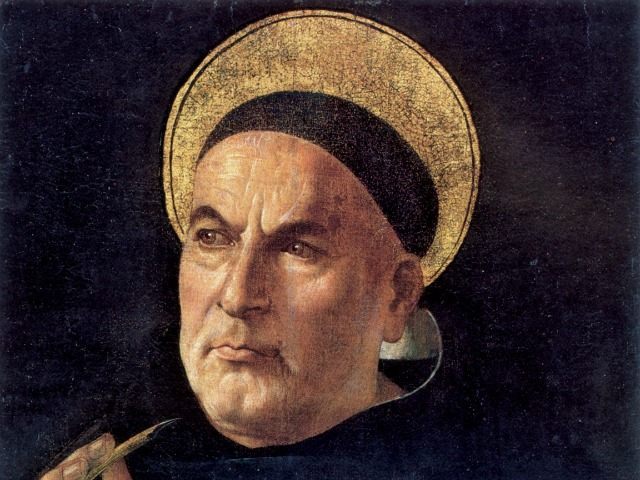
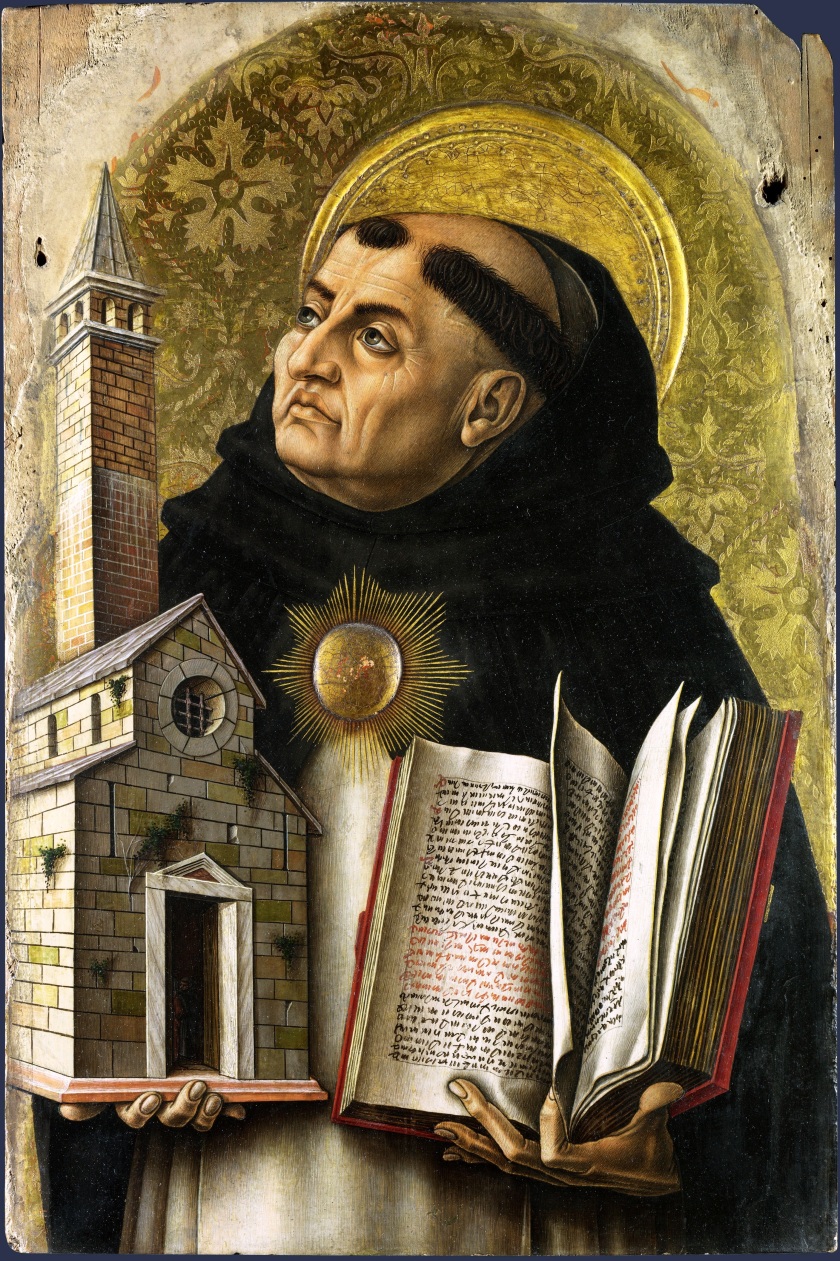
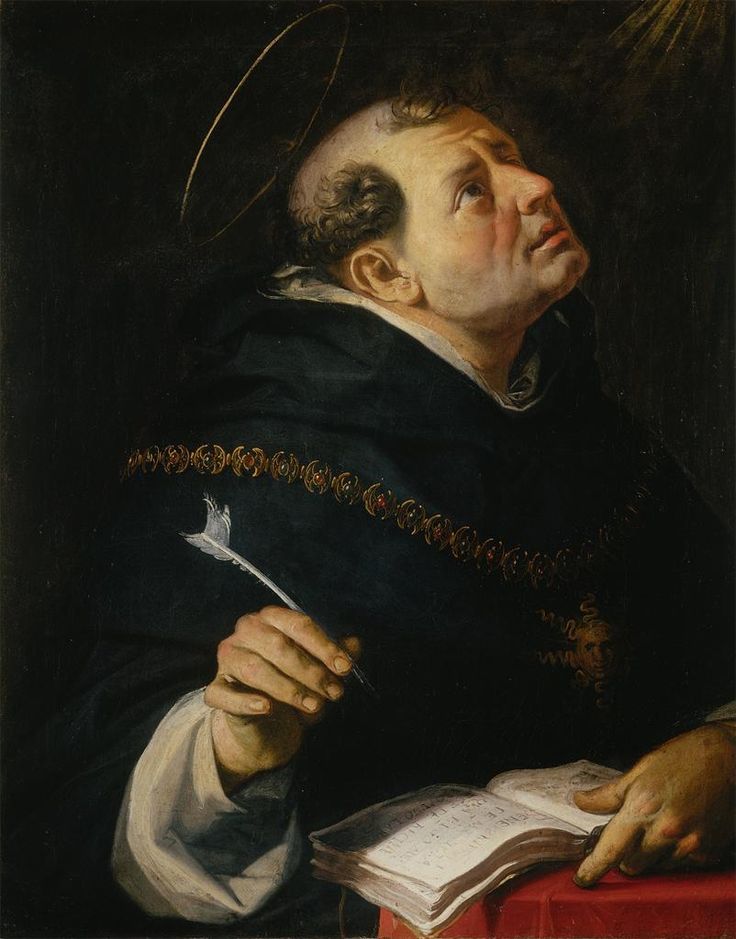
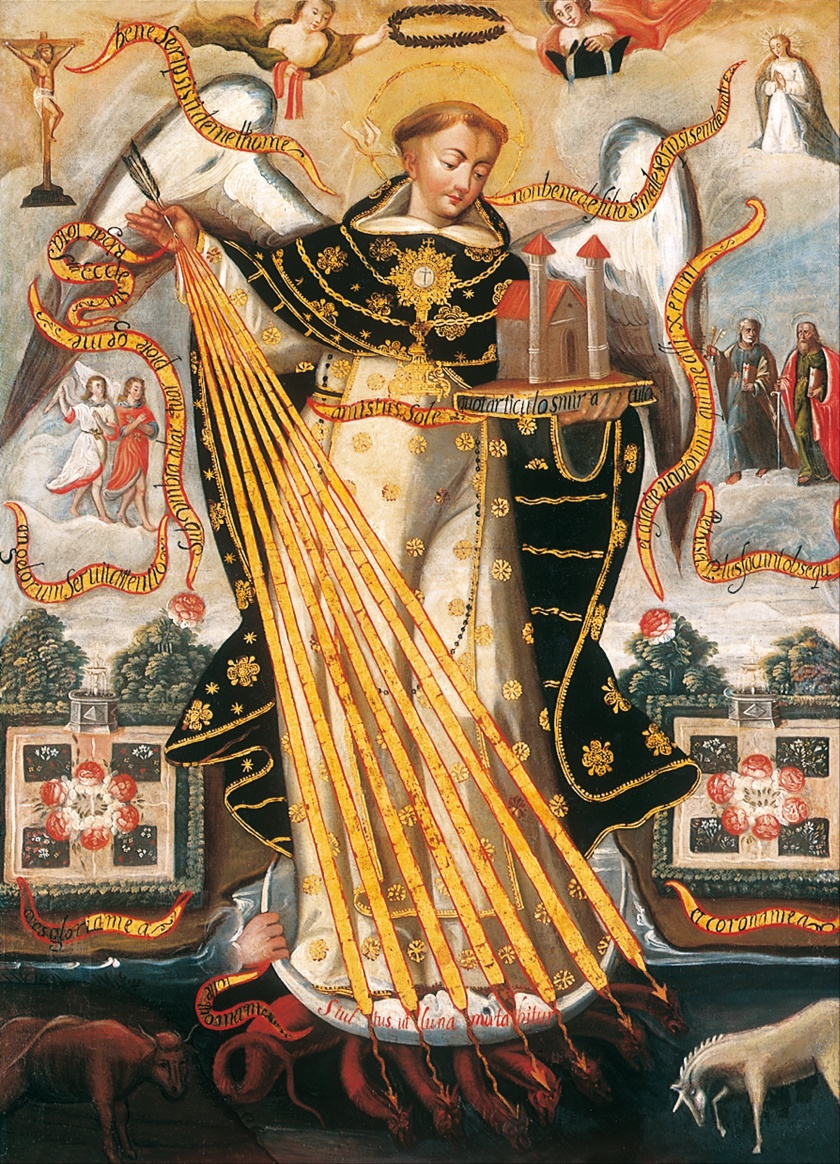
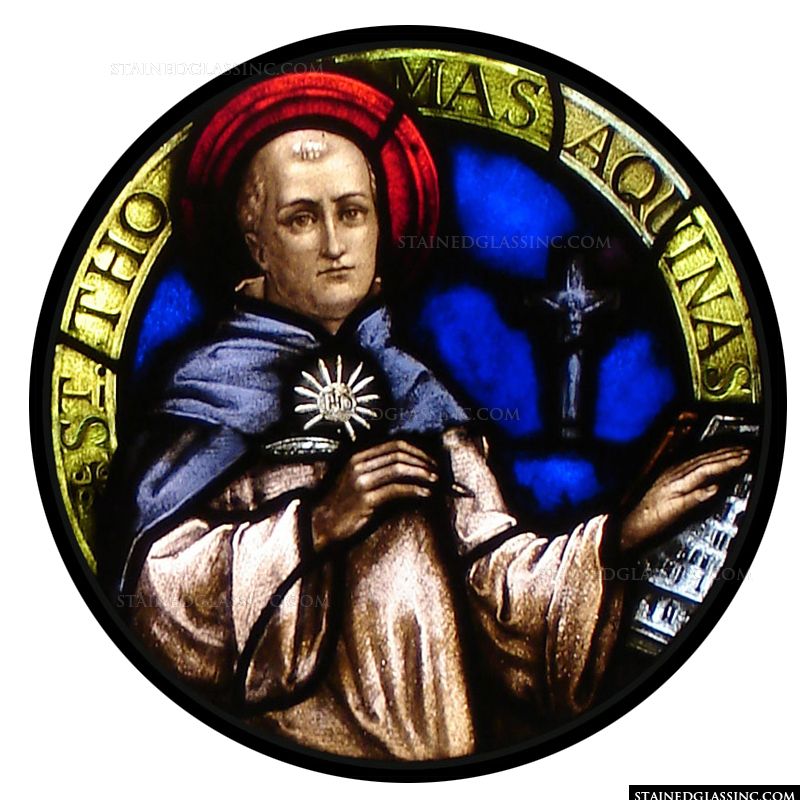
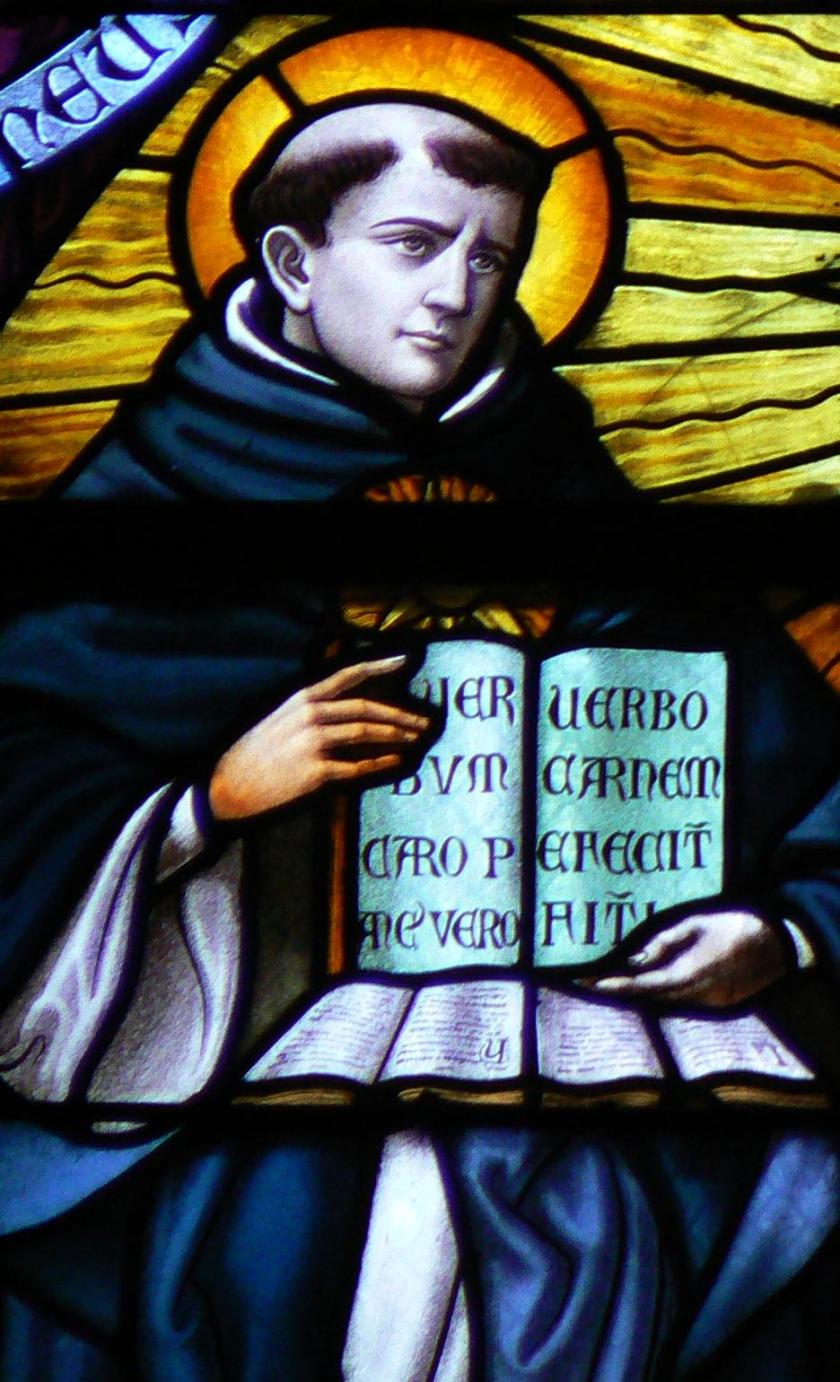
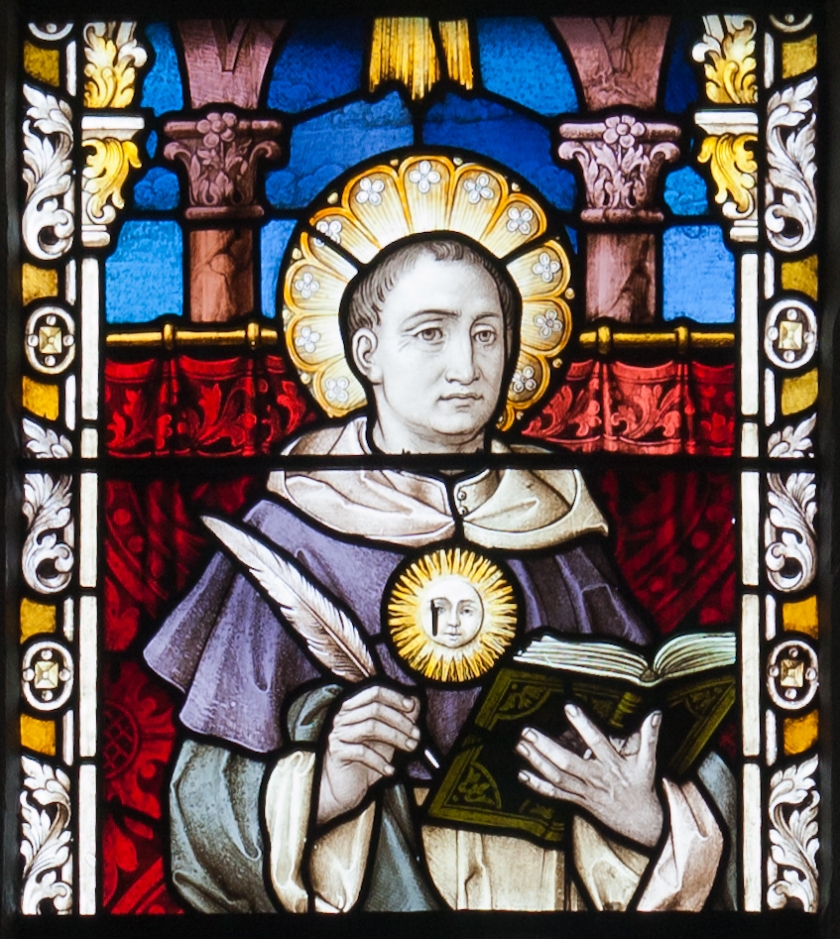
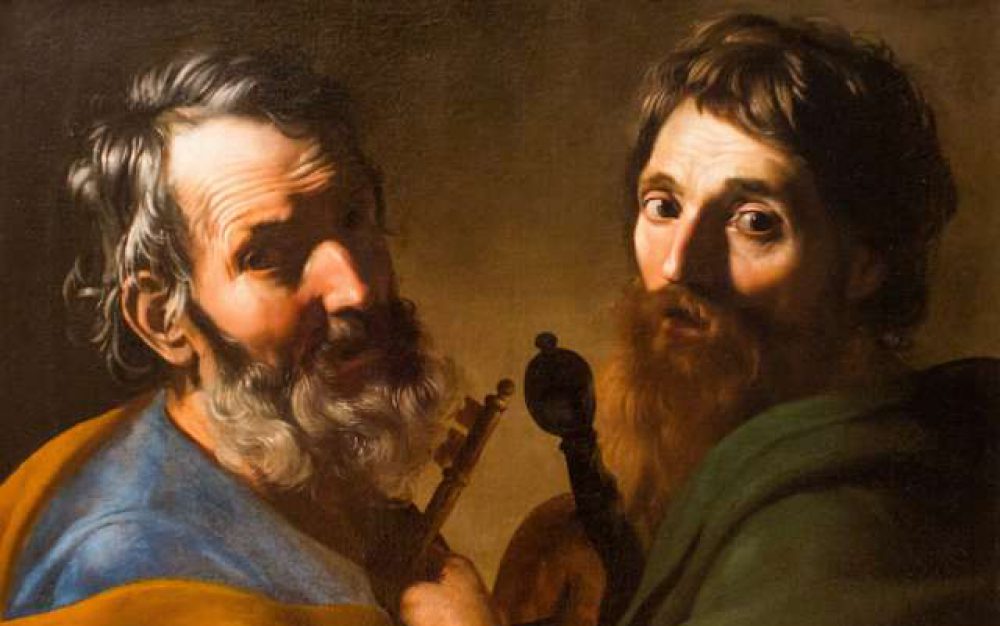




4 thoughts on “Saint of the Day – 28 January – St Thomas Aquinas (1225-1274) Doctor angelicus (Angelic Doctor) and Doctor communis (Common Doctor)”